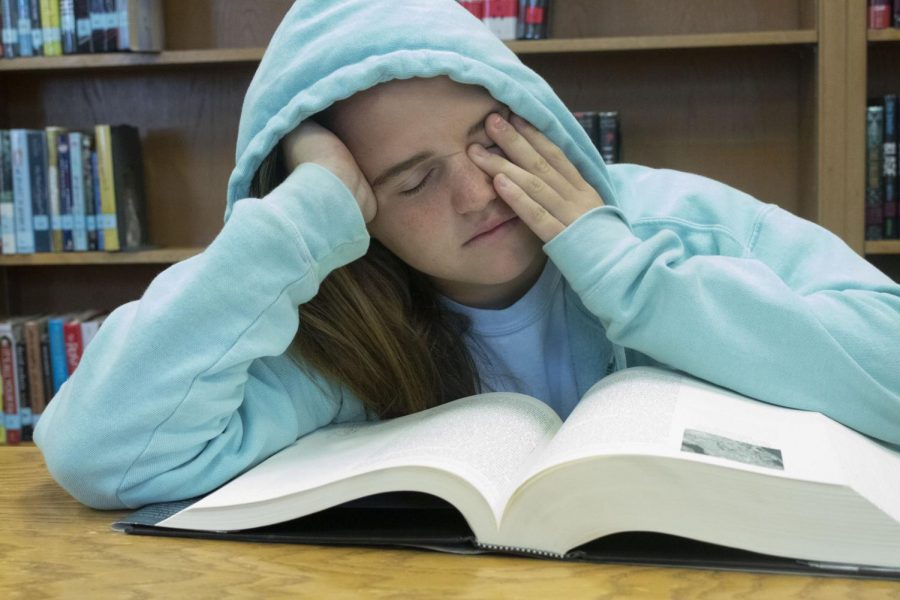Generation Z’s biggest problem isn’t declining grades or laziness – it’s sleep.
Only one in every 20 teenagers is projected to get the amount of sleep they need, according to a recent AMA Pediatrics Journal. This is problematic because getting enough sleep goes hand-in-hand with physical and mental health.
“Getting eight hours of sleep will help with depression and anxiety,” pediatrician Dr. Jennifer Wheeler said. “We also see a lot of headaches and stomach issues with lack of sleep, so sleep affects emotional and physical health.”
However, teenagers’ natural circadian rhythms and the school bell schedule contribute to loss of sleep in high school, according to the school’s personal counselor, Candice Conner, who received a Doctorate of Psychology in Clinical Psychology.
“Teenagers natural circadian rhythms are to stay up later,” personal counselor Dr. Candice Conner said. “They don’t get tired as early as young children, and so their natural biological development causes them to wake up later, yet the way the school day functions is they have to get up earlier than if they were allowed a full ten hours,” Conner said.
Circadian rhythms regulate sleep and wake cycles over a 24-hour period. As people develop, their circadian rhythms naturally shift about two hours, so someone who once fell asleep at 9:00 pm would start falling asleep at 11:00 pm as they go through puberty. With this shift, teens need to sleep two more hours in the morning as well, but the school bell schedule usually does not allow time for this.
“A lot of the research says that high schools should start later in the day,” Conner said.
The Center for Disease Control and Prevention actually recommends high schools start at 8:30 am.m or later to give teenagers enough time to sleep, but most high schools, including Highland Park High School, start before 8:30. As teens lose more and more sleep, they stop paying attention in class, especially first and second period.
“My morning classes are usually calm and quiet, like they’re still half asleep,” Pre-AP Geometry teacher Staci Kimbrough said. “When I can tell my students are tired, it definitely affects their grades because I think they’re just not as sharp.”
On top of the change in circadian rhythms, high schoolers also have full schedules, stacked with time consuming responsibilities. Between homework, extracurriculars and social lives, teen sleep schedules are being pushed farther and farther back into the night.
“Sometimes it’s hard for me to balance sports with school, so I end up not getting enough sleep,” freshman Ethan Scott said.
During sleep, a person’s brain and body rest in order to fully function during the day. When someone is suffering from sleep deprivation, they will likely experience problems with attention, creativity, decision making, memory and reaction time. To help prevent this, some teachers are looking towards new research involving lessening homework loads.
“Every year I try to make the homework shorter and shorter because if I can cut anything out [of students’ schedules] then I want to,” Kimbrough said. “I still want everyone to have enough practice so that they can be successful, but it’s kind of a fine line.”
Another resource for HP students to make more time for sleep is to take a study hall period.
“A study hall is beneficial, really, for two reasons,” counselor Ronny Winford said. “For one, you don’t have any homework from that class, and two, it gives you time to work on your homework from other classes.”
For more information on sleep and sleep disorders, visit the Center for Disease Control and Prevention’s sleep website.




